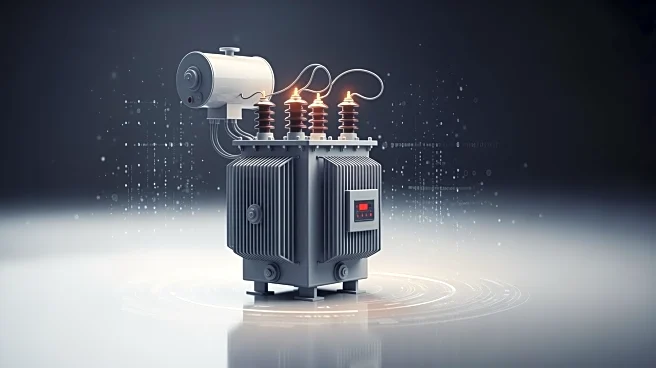What's Happening?
Swiss engineering company ABB has reported robust sales in the U.S., driven by a surge in new data centers being built to process artificial intelligence. The company, which manufactures factory robots and electrification systems, noted a 27% increase
in new orders during the third quarter. Despite ongoing U.S. import tariffs, ABB's Chief Executive Morten Wierod stated that the company has seen little impact on customer demand. ABB's revenue rose 11% to $9.08 billion, surpassing forecasts, while orders increased by 12%. The company is also expanding its U.S. production capabilities, aiming to produce 90% of its products locally.
Why It's Important?
ABB's strong performance in the U.S. market highlights the growing demand for data centers and electrification products, which are crucial for supporting AI technologies. This trend indicates a shift in industrial priorities towards digital infrastructure, potentially benefiting companies involved in tech and automation sectors. The limited impact of tariffs suggests resilience in the industrial economy, with ABB's strategic local production mitigating potential cost increases. This development could influence other companies to adopt similar strategies to navigate trade tensions and capitalize on emerging market opportunities.
What's Next?
ABB plans to continue investing in its U.S. factories to increase local production, which could further enhance its market position and reduce tariff-related costs. The company's partnership with Nvidia to develop next-generation data centers may drive additional growth and innovation in the sector. As demand for AI processing capabilities rises, ABB's focus on electrification and automation could lead to increased market share and influence industry standards. Stakeholders, including tech companies and industrial firms, may respond by accelerating their own investments in digital infrastructure.
Beyond the Headlines
The expansion of data centers and electrification trends may have broader implications for energy consumption and environmental impact. As industries invest in uninterrupted power supplies and electrification, there could be increased pressure on utilities and power generation sectors to adapt and innovate. This shift may also prompt discussions on sustainable energy solutions and regulatory measures to balance technological advancement with environmental stewardship.
















